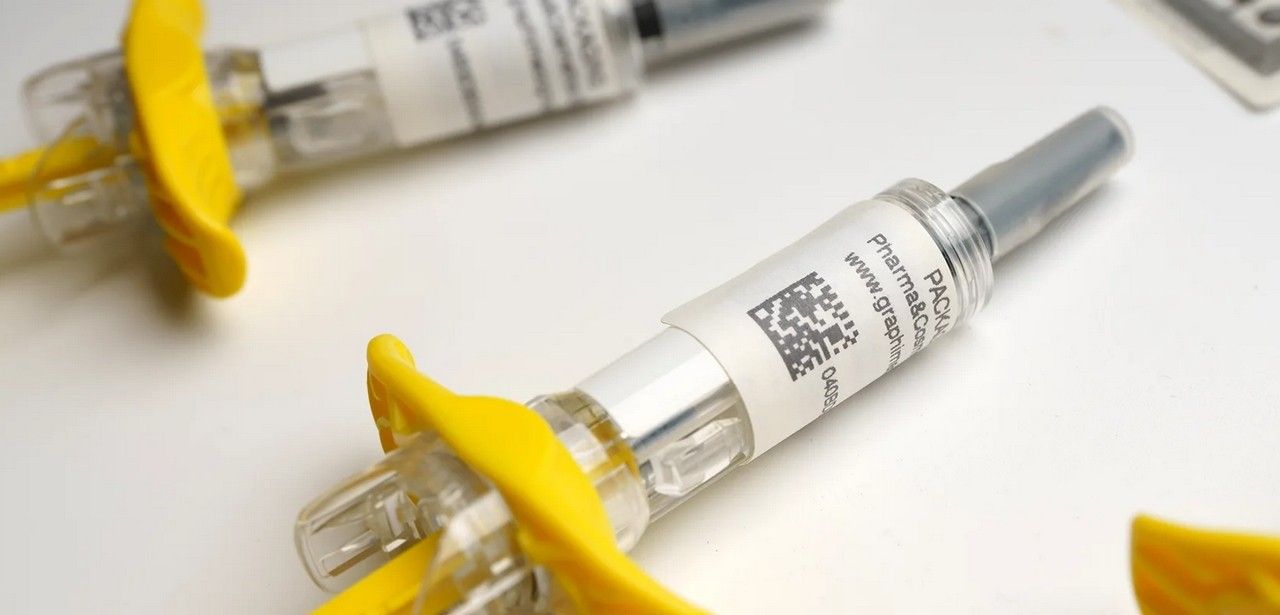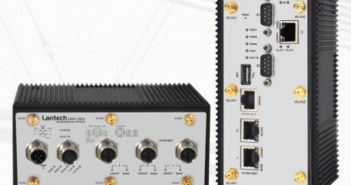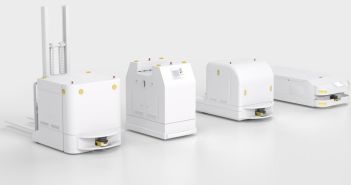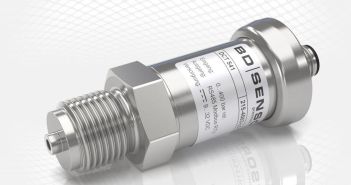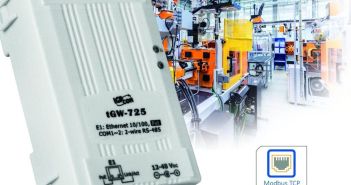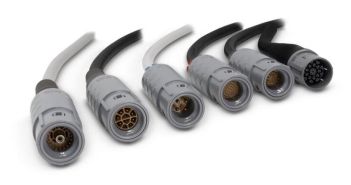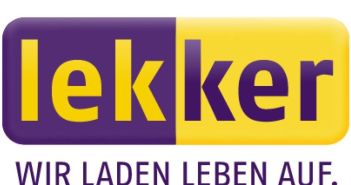The implementation of digital identification solutions such as RFID and QR code has revolutionized the supply chain mechanism in various industries, including the pharmaceutical, medical, and healthcare equipment sectors. These technologies have been considered by companies in these industries to enhance process optimization and product quality. By utilizing RFID and QR codes, organizations can ensure seamless tracking and tracing of products, prevent counterfeiting, and improve overall efficiency in the pharmaceutical industry.
Table of Contents: What awaits you in this article
Digital Identification Solutions: Transforming the Pharmaceutical Industry
The implementation of digital identification solutions such as RFID and QR code in the pharmaceutical industry has the potential to greatly enhance the sector. These technologies enable monitoring of various aspects including security against counterfeiting, unique identification of individuals and objects, real-time traceability, secure patient identification, medication inventory management, and adherence to safety and quality standards. By adopting these solutions, pharmaceutical companies can optimize their processes and improve the overall quality of their products.
- Methods to prevent counterfeiting
- Unique identification of individuals and objects is achieved through modern technology such as RFID and QR codes
- Real-time tracking
- The implementation of digital identification solutions such as RFID and QR code enables secure and accurate patient identification
- Efficient inventory management streamlines medication storage
- Safety and quality standards are crucial in the pharmaceutical industry to ensure the efficacy and integrity of products
This article explores the implementation of digital identification solutions in the pharmaceutical industry, highlighting how these technologies can address future challenges. It discusses the potential benefits of these solutions, such as improved supply chain management, enhanced product quality, and increased patient safety through secure identification and traceability. By leveraging technologies like RFID and QR codes, the pharmaceutical industry can optimize processes, prevent counterfeiting, and ensure compliance with regulatory standards.
Challenges in pharmaceutical production require regular inspections and monitoring
In the pharmaceutical industry, challenges related to product quality primarily revolve around the production process. Regular inspections are necessary to ensure that production, work processes, and materials used meet the required standards and to identify any deviations that may occur.
These deviations occur when a supplier’s requirement does not meet the predefined standards in the “Quality Agreement” that regulates the quality between the production site and the supplier. The “Quality Agreement” guarantees the safety and efficacy of pharmaceuticals by providing compliant information according to a variety of regulations, including specifications of the end product.
- The labeling of pharmaceutical products must meet specific requirements
- The implementation of digital identification solutions such as RFID and QR codes enables the tracking of the production process and ensures quality assurance
- The implementation of digital identification solutions such as RFID and QR code enables traceability and authentication measures to prevent counterfeiting
Traditional packaging often lacks sufficient space to provide all the necessary information about pharmaceutical products. However, the implementation of digital technologies like RFID and QR codes allows for the inclusion of important details, enhancing precision, traceability, and product quality. By utilizing these solutions, customers can access vital information, leading to improved safety and effectiveness of medications and medical devices.
Advancing the Pharmaceutical Industry: Benefits of Digital Identification Solutions
The implementation of digital identification solutions in the pharmaceutical industry is a crucial step towards a more advanced, secure, and efficient future. These solutions have the potential to address various challenges, such as human error, regulatory compliance issues, risks to patient safety, and operational inefficiencies. By utilizing these technologies, the healthcare sector can benefit in areas such as preventing medication errors, ensuring regulatory compliance, enhancing patient safety, and improving operational efficiency.
Enhancing Pharmaceutical Industry Authenticity with Digital Identification Solutions
Guaranteeing the authenticity of pharmaceutical products is crucial in preventing the circulation of counterfeit drugs. Implementing digital identification solutions such as RFID and QR codes can ensure that only certified medications reach the market, safeguarding patient health and safety.
Advancements in Automation: Transforming the Pharmaceutical Industry
Automation plays a crucial role in the pharmaceutical and healthcare industry, enabling streamlined processes and efficient management of medication inventory. By automating various tasks, such as medication dispensing and inventory tracking, it not only improves workflow efficiency but also reduces the risk of medication errors. This technology optimizes the management of pharmaceutical products, ensuring accurate and timely access to medications, ultimately enhancing patient safety and improving overall healthcare outcomes.
Cost Efficiency and Effectiveness: Improving Pharmaceutical Industry’s Expenses
Efficiency and effectiveness improvements in healthcare costs are crucial for the pharmaceutical industry. According to a study by Avery Dennison, more than 7% of pharmaceutical stocks are lost, damaged, or overproduced. These statistics are significant, not only because these stocks are essential for human health, but also because pharmaceutical companies lose 3.6% of their annual revenue. Implementing digital identification solutions like RFID and QR codes can help streamline inventory management, reduce losses, and improve cost-efficiency in the healthcare system. This ultimately benefits both patients and pharmaceutical companies.
Enhancing Pharmaceutical Industry Quality with Digital Identification Technologies
Quality control in the pharmaceutical industry involves the constant monitoring and assessment of key parameters in the production processes. This includes regular checks on factors such as temperature, pressure, and chemical concentrations. By maintaining strict control over these parameters, pharmaceutical companies can ensure that their products meet the required quality standards and are safe and effective for use.
Improving Medication Administration through Digital Identification Solutions
Digital identification solutions such as RFID and QR codes offer the ability to provide accurate information to medical professionals and patients regarding dosage, timing of administration, and the method of delivery. This technology saves time and reduces the risk of errors by ensuring that the correct information is readily available to those who need it. By utilizing these digital solutions, the pharmaceutical industry can greatly enhance patient care and improve medication management processes.
Enhancing Security in the Pharmaceutical Industry with Digital Identification Solutions
Improvement of healthcare and patient safety: By reducing the risk of human errors such as incorrect labeling or swapping of laboratory samples, this solution helps prevent misdiagnosis and promotes better clinical outcomes. It ensures that patients receive the correct treatment and medication, reducing the potential for adverse reactions or complications. Additionally, it streamlines healthcare processes, minimizes delays, and enhances overall patient care. This technology plays a crucial role in ensuring accurate and safe healthcare delivery, ultimately improving patient health and well-being.
Improving Pharmaceutical Industry Through Digital Identification Solutions
Adding additional information or details to a medication allows customers to gain a better understanding of its usage, benefits, and advantages. This can include information on dosage instructions, potential side effects, contraindications, and any special precautions that need to be taken. By providing this information, pharmaceutical companies aim to empower customers to make informed decisions about their healthcare and ensure the safe and effective use of medications.
Digital solutions combat pharmaceutical counterfeiting with new technologies
Counterfeit pharmaceutical products pose a significant challenge in the industry today, with an estimated global value of approximately $200 billion. This not only undermines consumer safety but also threatens the economic stability of nations. It is crucial for pharmaceutical companies to address this issue by implementing digital identification technologies such as QR codes and RFID to authenticate their products, protect their brand reputation, and ensure the safety of consumers.
Digital identification technologies such as QR codes or RFID can play a crucial role in combating counterfeit products, including unregistered medications. By implementing these technologies, customers can verify the authenticity of their purchases, reducing the health risks associated with counterfeit drugs. This is particularly important as unregistered medications may contain incorrect or harmful ingredients, leading to ineffective treatment or even serious health consequences.
According to a recent report by the European Union Intellectual Property Office (EUIPO) and the Organisation for Economic Co-operation and Development (OECD), counterfeit medications pose significant risks to patients. These risks include toxicity due to incorrect active ingredients, inability to treat existing health problems and prevent future diseases, incorrect dosages and potentially deadly contaminations, the advancement of antimicrobial resistance and drug-resistant infections, increased costs for patients seeking additional medical care, and even death.
- The presence of incorrect active ingredients in pharmaceutical products can lead to toxic effects on the body
- Inability to treat existing health problems and prevent future diseases
- Incorrect dosage can lead to serious health risks
- The increasing resistance of microorganisms to antimicrobial drugs
- Increased costs for patients seeking additional medical care can be burdensome
- Fatal Outcome
Pharmaceutical companies worldwide have embraced digital identification technologies such as RFID and QR codes to combat counterfeiting and provide customers with the ability to verify authenticity at the point of purchase. These technologies not only help protect the brand and reputation of the companies but also instill trust and credibility in their products. By implementing these solutions, pharmaceutical companies are taking proactive measures to ensure the safety and integrity of their products, ultimately benefiting both the industry and consumers.
The implementation of digital technologies such as RFID and QR codes in the pharmaceutical industry allows companies to demonstrate their commitment to safety and integrity, thereby influencing customer loyalty through trust and credibility. By providing consumers with the ability to verify the authenticity of products, these technologies enhance the company’s reputation and competitiveness in the market.
Advantages of Implementing Digital Identification Solutions in the Pharmaceutical Industry
The implementation of digital identification solutions such as RFID and QR codes in the pharmaceutical industry offers a wide range of benefits. These technologies have the potential to improve production processes, enhance the security and authenticity of medications, and increase efficiency while reducing costs in the healthcare system. By combating counterfeiting, these solutions can even save lives and protect the economic stability of countries. It is therefore crucial for companies in the pharmaceutical industry to utilize these digital solutions to optimize their processes and ensure the quality of their products.


